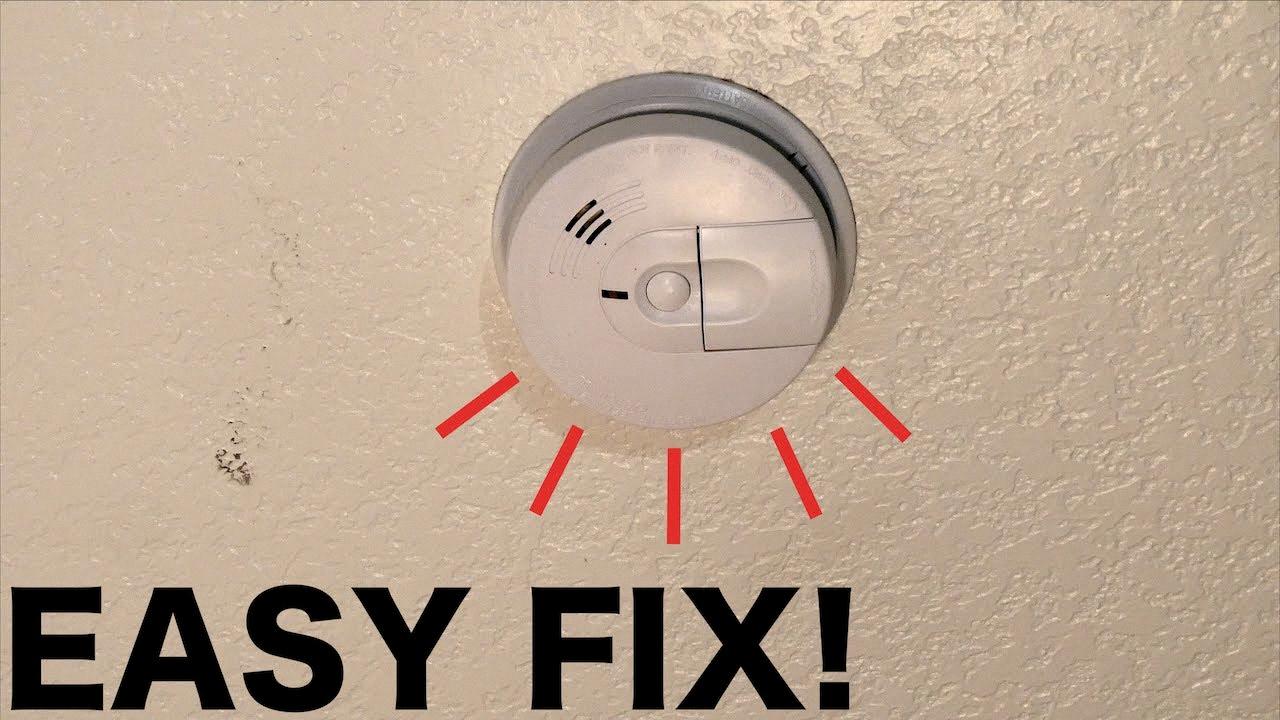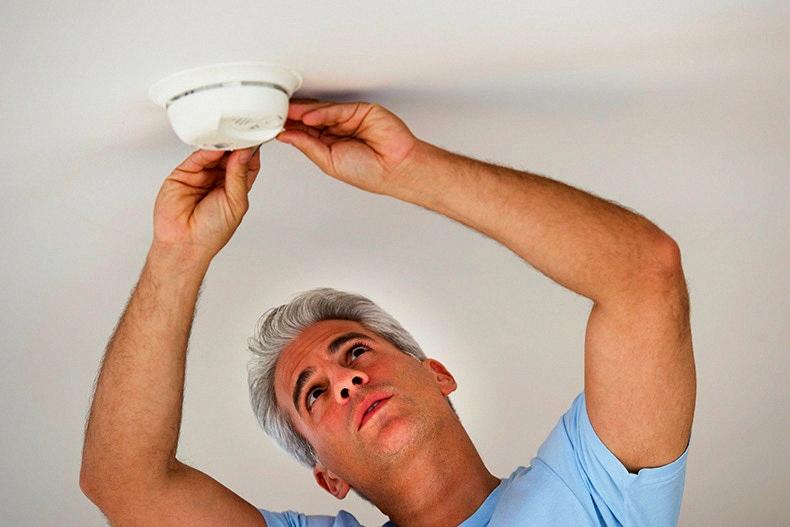Fire alarms are an essential safety feature in any home or building. They are designed to detect smoke and fire, and alert occupants to evacuate the premises immediately. However, there are times when fire alarms may go off randomly, causing confusion and frustration for the occupants.
There could be several reasons why a fire alarm goes off randomly. Here are some of the most common causes:
1. Dust and debris: Over time, dust and debris can accumulate inside the fire alarm, causing it to malfunction. This can result in false alarms, where the alarm goes off even when there is no smoke or fire.
2. High humidity: High humidity levels can also cause fire alarms to go off randomly. This is because moisture in the air can interfere with the sensors in the alarm, triggering false alarms.
3. Faulty wiring: Faulty wiring can cause the fire alarm to malfunction, resulting in false alarms. It is important to have a qualified electrician inspect the wiring to ensure it is in good condition.
4. Low batteries: If the batteries in the fire alarm are low, it can cause the alarm to go off randomly. It is important to replace the batteries regularly to ensure the alarm is functioning properly.
So, what shold you do if your fire alarm goes off randomly? Here are some steps you can take:
1. Identify the cause: Try to identify the cause of the false alarm. If it is due to dust or debris, you can clean the alarm to see if that solves the problem. If it is due to high humidity, you can try to reduce the humidity levels in the room.
2. Check the batteries: If the batteries in the fire alarm are low, replace them immediately. This will ensure the alarm is functioning properly.
3. Call a professional: If you are unable to identify the cause of the false alarm, or if it continues to go off randomly, it is important to call a professional. They can inspect the alarm and determine the cause of the problem.
Fire alarms are an essential safety feature in any home or building. However, they can go off randomly, causing confusion and frustration for occupants. By identifying the cause of the false alarm and taking the necessary steps to rectify the problem, you can ensure your fire alarm is functioning properly and providing the necessary protection for you and your family.
Investigating the Cause of a Randomly Activated Fire Alarm in the Middle of the Night
There could be sevral reasons why your fire alarm randomly went off in the middle of the night, but one of the most common causes is a low battery. Smoke alarms typically use a 9-volt battery to power their operation, and when the battery starts to run low, the alarm may sound a low-battery chirp. This can happen when the air temperature drops, especially during the early hours of the morning when most homes are the coolest. The drop in temperature can cause the battery’s voltage to drop, triggering the alarm to sound. However, once the home warms up a few degrees, the alarm may stop chirping. Therefore, it’s important to check the battery in your smoke alarm regularly and replace it when needed to ensure that it functions properly and alerts you to potential fire hazards. Other possible reasons for a fire alarm to go off randomly in the middle of the night include a malfunctioning smoke detector, electrical issues, or dust or debris buildup in the alarm.

Source: youtube.com
What Else Can Set Off a Smoke Detector?
Smoke detectors can be set off by a variety of factors other than smoke. One common caue of false alarms is burnt food, which can produce smoke and trigger the alarm. Fireplaces can also result in false alarms, as can high humidity and steam. Insects, such as spiders or flies, can crawl into the smoke detector and trigger the sensor, while dust, dirt, and environmental smoke can also set off the alarm. Additionally, low batteries or the need for replacement can cause false alarms. It is important to keep these factors in mind when installing and maintaining smoke detectors to ensure they function properly in the event of a real emergency.
Do Fire Alarms Detect Carbon Monoxide?
Some smoke alarms are designed to also function as carbon monoxide detectors, and will trigger an alarm if elevated levels of this deadly gas are detected. Carbon monoxide is odorless and colorless, and can be produced by malfunctioning appliances or combustion devices, so having a reliable carbon monoxide detector is crucial for protecting your home and family. If your smoke alarm or carbon monoxide detector emits any chirping or beeping sounds, it should be taken seriously and investigated immediately to ensure the safety of everyone in the household.
Troubleshooting a Smoke Alarm Going Off Without Smoke or a New Battery
A smoke alarm can go off without smoke or fire due to several reasons. One common reason is a build-up of dust, dirt or other debris inside the smoke alarm cover or sensor chamber. This can cuse the alarm to activate, even if there is no smoke present. In such cases, it’s important to gently vacuum the smoke alarm regularly using a soft brush attachment to remove any accumulated dust and debris.
Another reason for false alarms could be due to high humidity levels, steam or cooking smoke. Smoke alarms are designed to detect smoke particles in the air, and in some cases, high humidity or cooking smoke can trigger the alarm. To avoid this, it’s recommended to install smoke alarms away from the kitchen or bathroom and to use exhaust fans to keep humidity levels low.
Furthermore, some smoke alarms may also malfunction due to age or damage. Smoke alarms have a lifespan of around 10 years, and after this period, they may become less sensitive or stop working altogether. It’s important to replace smoke alarms every 10 years and to test them regularly to ensure they are functioning properly.
Smoke alarms can go off without smoke or fire due to various reasons, including dust build-up, high humidity, cooking smoke, and malfunction due to age or damage. Regular maintenance and replacement of smoke alarms can help prevent false alarms and ensure they are working correctly in the event of an emergency.
The Possibility of False Alarms from Smoke Detectors
Smoke detectors can give false alarms. There are several reasons why this might happen. One common cause is if the smoke detector is too close to a bathroom, kitchen stove, or kettle, which can cause the detector to sense moisture particles in the air as smoke particles. Additionally, if the detector is dirty or the battery is low, it may malfunction and give a false alarm. High humidity levels in the air can also cause false alarms in some types of smoke detectors. It is important to regularly clean and maintain smoke detectors to minimize the risk of false alarms.

Source: adssecurity.com
Stopping a False Fire Alarm
False fire alarms can be a nuisance and caue unnecessary panic. To stop a false fire alarm, the first step is to locate the source of the false alarm. Once you have located the source, you can try to reset the alarm by pressing the reset button on the control panel. If the alarm continues to sound, you can try to silence the alarm by pressing the silence button on the alarm itself. If you are unable to silence the alarm, you may need to contact the fire department or the alarm monitoring company to assist you in stopping the false alarm. It is important to note that false alarms can be caused by a variety of factors, such as dust or steam, so it is important to address the underlying issue to prevent future false alarms from occurring.
Conclusion
Fire alarms are essential safety devices that can help save lives and prevent property damage in the event of a fire. They work by detecting smoke or heat and alerting occupants of the building with a loud alarm. However, false alarms can be a nuisance, and it’s important to understand the common causes of false alarms, such as burnt food, high humidity, and low batteries. By being aware of these factors and regularly maintaining your fire alarm system, you can ensure that it functions properly and provides reliable protection for you and your loved ones. Remember, fire safety is everyone’s responsibility, so take the necesary precautions to prevent fires and be prepared in case of an emergency.
